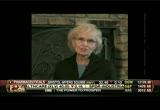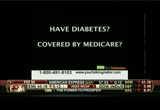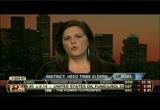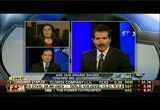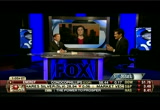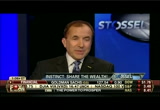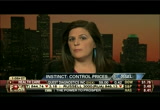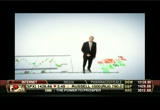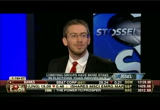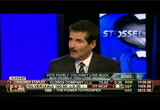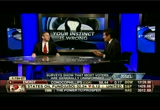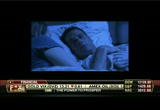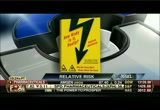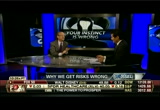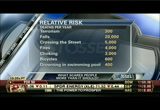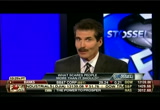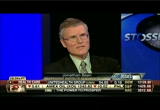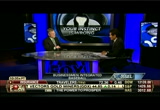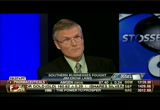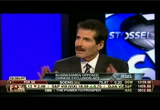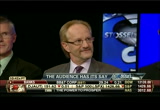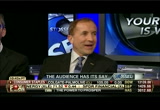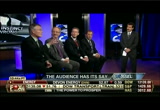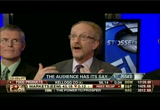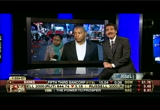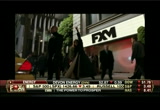tv Stossel FOX Business December 25, 2012 1:00pm-2:00pm EST
1:01 pm
instinct tells us flying is dangerous, charity helps the poor, price gouging is evil and every adult should vote. tonight we challenge your instincts, who helps the poor more, charity or business? the charity or business? >> charity.harity. >> charity. john: is that true? self-interest.at true? more people than charity ever did.pe has. then, what scares you? are you scared of flying? bis is much more likely to killl you. and finally, it's your duty. i i say, say some of you shouldn't vote. because o some of you don't know much. >> do you know who this is? >> looks like will ferrell. john: do you both? maybe you shouldn't if you don't know who these people are. >speaker you are correct. john: your instinct is probably wrong.
1:02 pm
that's our show tonight. >> and now, john stossel. [applauding] john: what does your brain tl you that america should do about our problem? we have plenty. a lot of people are poor. we should spread the wealth around. i hear busesses raise prices and gouge people. foreigners sneak into america and take american jobs, there ought to be a law, government ought to do something. that's just the way pple think, it's instinct. i have to admit how i used to think, took me decades to realize i was wrong, passing a law often does more harm than good. and progress comes from millions of individuals acting to make themselves better off guided by an invisible hand that inadvertently helps others.
1:03 pm
not to viewers of the "stossel" show, but to normal people. when there is a problem, government should address it. my next guest says they know what our brain is wired that way. an evolutionary psychiatrist at the university of california santa barbara and the author of the mind of the market. so, there is your book, let me start with you since you talk about the mind. you say the faith in government comes from evolution and? >> the natural propensity we have is if people have more stuff than somebody else, there must have been something else done wrong, something immoral, something unfair because in the small band of hunter and gatherer in very resource poor environments for most nobody had any kind of wealth so any redistribution had to be done fairly equally or else it was
1:04 pm
obvious somebody was getting more than somebody else through unfair means. that is how it was throughout history. john: i wouldhink when we lived in the clan or the tribe there was an elder or a few of them who ran things. >> right, there is a chief or a big man that solves the problems, so we tend to look up to the alpha male. you solve the problem for us, you make the decision for us if we can't.wnç it. john: do you agree with that? >> with a lot of it. we live in an advanced industrial economy where market inlves millions of people interacting the don't have an understanding of the consequences and that kind of world. we evolved were the people around you were family, friends, people you are in intimate contact with everyday. our moral intuition of cooperation and sharing evolved
1:05 pm
from the small-scale operation where you knew everybody you are interacting with and you could see if they were contributing, whether they were contributing, whether they were hunting with you are gathering with you, making an effort or loafing. you could see what was happening and you could sanction them. john: why should it be different because we have 300 plus million people? >> it doesn't scale up because to millions of people or thousands of people even hundreds of people because you can't do the same sort of monitoring. when you try as was done in a communist countries for many appears to organize collective action where you decouple reward some effort. john: they failed one or the other these groups. >> yes, they failed because those who contribute when they see people with a free ride they want to contribute less and less. the only way to sustain it is
1:06 pm
through punishment and coercion. there is a dark side of communism. there is a very dark side because a lot of research and experimental economics and other have been shown without the possibility of punishing free writers, don't get the same contributions for the public good. john: some of these issues were people say government must step in. the very rich country, since some of us are rich, make sense take from the rich and give to the po. some said it was just fair. >> your make in over a million dollars, it is not fair. john: it does seem unfair. based on the hatred of the inequality. >> if you put a name to it, you mean steve jobs did something wrong or famous davs became a
1:07 pm
millionaire making cookies? no, it is the oil companies or the finance company, it is a amorphous entity that's easy to travel light as an enemy. instinctively it feels right, but it is completely worthless, does not. john: instinctively it feels wrong for thousands of years there were laws against usury, loaning money at some interest rate somebody decides is too high. and yet our economy is built on loans. >> this is another one of those tribal instincts that somehow is taking something away from me. because in our ancestral environment and up to the industrial revolution most people did not fairly make money. there was some kind of cheating going on, it was not a zero-sum game. only recently did it become a
1:08 pm
win-win. not only helps me, but it helps you and everybody, very counterintuitive sold and resold repeated over and over because it doesn't feel right. john: most everybody had no doubt about the answer to this. >> who helps the poor more, charity or business? >> charity. >> charity. john: most everyone said charity. >> taking more money killing the lower people. i said charity. john: so what's wrong wi that? 's because they would dissolve apple computers and gave away the billions of dollars in assets. the wealthiest company in the world right now. would that help more people than if they kept making great products and making a profit at hiring people? everybody knows to solving it would be a disaster, they spent the billions in no time and it
1:09 pm
would be gone and nothing would be improved. john: to make enough products, hiring people, expanding, you have to look at economics to see this helps many more people. >> yet it is still counterintuitive, they should give their fair she. the rich are already giving more than their fair share for what they get for their money. if it was privatized. we have a sense of how things ought to be because the last thousands of years, things are notlike they are now. john: talk about rent control. make sure it is reasonable. >> people feel good about themselves, doing something nice for homeless people, but when we have tried to study this, it turns out to shrink the housing and particularly shrinks low
1:10 pm
cost housing and so you end up throwing people out on the streets to a brutal life of poverty making the problem, it seems nice, but actually makes the problem worse. john: you know the price is down. >> you feel you are doing something good because we feel about is govned by the evolved transition into the world, but live in a very complicated world with the policies that needs be analyzed. john: on more counterintuitive example, pro scouting, at their best people in the streets, some disaster happens, some erase that raises the pricf water, batteries, generators. >> seems like what we see looks bad and intuitively our minds are too dislike that. long-term consequences are that if you calculate it out, it ends
1:11 pm
up as a bitter good for all of us. john: making more people bring in batteries and wattr. >> it solves the demand and supply problem. john: why everybody should studies and economics. what's most likely to kill you? not what you think. and should these people vote? >> do you kn who this is? >> do you kn who this is? looks like will how do traders using technical analysis streamline their process? at fidelity, we do it by merging two tools into one. combining your customized charts with leading-edge analysis tools from recognia so you can quickly spot key trends and possible entry and exit points. we like this idea so much
1:12 pm
that we've applied for a patent. i'm colin beck of fidelity investments. our integrated technical analysis is one more innovative reason serious investors are choosing fidelity. now get 200 free trades when you open an account. girl: don't look at me. second girl: your hair's a bit frizzy today. aw! ha ha! you should pick that up. announcer: every day, kids witness bullying. poor you. ha ha! they want to help but don't know how. teach your kids how to be more than a bystander. visit stopbullying.gov.
1:14 pm
1:15 pm
you're the audience that bothers to come to my show, so you're obviously on top of things, but a lot of americans don't follow the news. i took these loan up photos of ron paul, mitt romney, newt gingrich, show them to people outside the studio figured some would know who ron paul is that everybody would know who mitt romney and newt gingrich are. >> do you know who this is? >> tom brokaw of? >> looks like will ferrell. >> how about this? didn't know who this is? >> the situation. >> is a character in a sleazy reality show but more near him then politicians did >> "the situation." john: thiss one reason they are dumb older rock concerts. many of the young people had no
1:16 pm
clue of them. it is a fine young people don't vote. most of them don't pay attention and will be less likely to vote. but i take heat for saying that saying some people shouldn't vote is sacrilegious, but when economists agree with me, author of the myth of the rational voter, why democracies choose bad policies. because voters are not rational? >> exactly. john: people want to do the right thing. >> people do want to do the right thing, but that doesn't mean they are doing it. if you try to do the right thing without knowing what you are doing you can easily messed things up. john: so voters don't have an incentive to get informed? >> what would happen if you voted at random?
1:17 pm
the same thing that happens to you otherwise. nothing. you are just one little vote out of millions and millions of people. so if you make a terrible decision, the same thing happens to you that happens to everybody else. an argument with a colleague of mine who says the problem with your argument, the real story is we are getting the government they deserve, and that is the problem. john: the people who really get informed and are likely to vote and get other people to vote are the special interest. >> that is usually true. they know what is going on and people who are listening will do what they are told in a lot of cases, sure. john: the rest of us have lives, it is not our interest to get somebody on. >> people are doing other
1:18 pm
things, it's very hard to know what is going on although if all you want to do is vote intelligently or at least not messed things up, there is this, being honest with yourself admitting there are things i don't know about. john: by contrast if you are dumb about your personal purchases, you are hurt. >> if you're walking by used car dealership and see signs saying the best cars in the world for the lowest prices even if you don't know anything about cars you can insert your skepticism and say that is what they all say but when a politician comes along and are more likely say he is so trustworthy, he has a big smile and wouldn't lie to me, wod he? john: and you clearly get stuck with a bad car. the market punishes you. speak to you may look back and say i'm not going to do that again. not so much voters are dumb, even smart people act dumb when
1:19 pm
they vote. i know an engineer who could get me off a desert island, but it is not he read the textbook i found something wrong, he knows what he likes and doesn't want to hear anything else. john: my test is fairly shallow, is this representative of? i heard other surveys found amazing things. >> is when they think they know answers that aren't true. foreign aid the largest item in the budget. john: one survey found the two biggest items in the budget, foreign aid. >> not social security, not defense. john: probably less than 1% of the budget. >> roughly 10% when you put them together. john: or social security or medicare 10 times bigger.
1:20 pm
1:23 pm
1:24 pm
me ask you, are you worried about terrorism? raise your hand if you worry about. okay. do you worry about your home catching fire? >> yes. john: okay, you are an unusual group. or people are more worried about terrorism, but much more likely that your house will catch fire. i don't think we worry about the right things. how about crossing the street? 5000 people get killed every year. what scares you more, who is scarinscared of flying? who is scared of driving? one-person, all right. i asked people upset about that, they say they know driving is riskier, but they say flying is what scares them. >> i control my car, but don't have control of the plane. john: even though the odds of a plane crash are much less than a
1:25 pm
car crash. john: what's that about? knows his odds are better in the plane but he still worries more about them. a former director of risk communication to the harbour center of risk analysis, he has been studying risk and attitudes about them. why? >> risk perception, not how the human being does it. john: this guy were interviewedd says i'm in control. john: there is a whole language, chapter two in my book four or five fields of science. john: how risky is it really? >> what various scientific told us of what our subjective interpretation to come up with judgment of whether risk comes from and one whole field is risk as personality traits to make them feel more or less scary.
1:26 pm
he points out people are more afraid of some environmental risk than what we need to be. in many cases those risks. john: chemical traces. >> those risks cause cancer. asking those people are you more afraid of cancer than heart disease i bet most of their hands would go up because it has the characteristics involving more pain and suffering. doesn't make emotional sense to me more afraid of what is nastier. regardless of what the odds say. by the way it drives policy of the federal government spends way more research on the number two cause of death, cancer than the national institute of health.
1:27 pm
john: the reason is sometimes it seems more important than the risk. here's one woman's explanation why she serve fears terrort or n car crash. >> they want me dead. with a car crash nobody is trying to kill me with their car. john: i don't get it, you are just as dead. why does that make you much scared? >> it is how you get dead. john: the car crashes just as violent. >> you hurt her. you use your mobile phone sometimes when you drive. have you ever had that experience of? her audience might have, on the phone driving along, you have optimism to deny what you a smart fellow they risky behavior.
1:28 pm
the local resume driving next to you, swerving, slowing down, and that guy makes you angry. do you think state law is trying to take away my? they say take away the risk that is being imposed on me because that feels different. it is how you get dead, not how dead you are. john: it comes from years of evolution. >> one where we had to have quick calls of what mht be dangerous because he spent more energy and time thinking about it, you're out of the gene pool. that trait is out we would have adopted shortening fax, emotional filters with how scary they are. and we are still in that animal.
1:29 pm
we pride ourselves with the intellect and statistics and rationale. the brain is only organ for which we think. most of it happens below the radar. john: i read the research what kills people, fearing terrorism, 300 deaths, but in the 20,000 deaths from falling. crossing streets 5,000, fires 4,000, choking on small objects 3,000, bikes 600 could drowning in a bath tub 300. statistically more likely to kill you know that a terrorist. >> it is wonderful we're having
1:30 pm
there conversation. make decisions for ourselves, which may feel right but which put us at greater risk. we need to recognize that our risk perception is subjective and formed by feelings as well as just those statistics, and recognize there is a danger in, that this phenomenon of a perception gap is in itself danger we can study, know why it happens, we can use that information and not just statistics to reduce the pitfalls. john: one final thought. you scared of nuclear power or school shootings or brain cancer from your cell phone. no evidence that anyone has been killed in america by nuclear power or cell phone but assumed 10 die a year, 25 are killed by plastic bags every year.
1:31 pm
thank you david,. >> thank you. john: stay with us, up next, how the free market solves things like racism, without government. like racism, without government. that is next. [ roasting firewood ] ♪ many hot dogs are within you. try pepto-bismol to-go, it's the power of pepto, but it fits in your pocket. now tell the world daniel... of pepto-bismol to-go.
1:35 pm
our instincts of often wrong, result is push for government policies that make problems worse. the politician that pushes stupid, but popular policies, gets rewarded. and probably reelected and push more stupid policies, in business, someone whose instincts lead him to do stupid things, gets punished. the free market punishes him, you g out of business, that has surprising consequences, some good ones says hit toran jonathan bean in your book erase what does race have to do with free market. >> people say, everyone is a racist. business people are racist, business people are greedy, how can you argue that business people had something to do with civil rights movement, i argue in my book, they have a lot to
1:36 pm
to with civil rights movement. john: what? >> branch rookie built a, empire, st. louis cardinals, a anti-new deal republican, a fierce businessman he built a championship series, he had st. louis browns, he had aking negro league team,. john: that is baseball? >> baseball, he could not let blacks into the baseball. he had jackie robinson in nsas city, he saw all of the talent out there other people would not hire, they were punishing themselves for their racist acts and so, he with -- dodgers they won championships, cardinals did
1:37 pm
not hire a single black player until 1958, and they lost their championship. john: people hired black players because it was good for says. >> good for business. john: at the time government was racist. d forcing jim crow, and southern businesses fought that? >>yeah, you know, government was branch rookie's problem, he had to escape the government of missouri to go to new york city with the brooklyn dodgers, down south, companies like pepsi who advertised to black consumers,. john: we have some pictures of that. they were doing it when it was illegal according to the government? >> yep. john: to share 3e pepsi at the lunch counter. >> these ads came out before people knew who martin luther
1:38 pm
king was. john: because pepsi wanted to make money. >> they were nearly bankrupt, they said, coke will not sill to negro consumers so we will, and the rest is history. john: jacksonville, florida, would not cigarette. >> everyone knows about -- but, what happened when they didn't' to enforce it. it costs them business, so they fought it, blacks boycotted it was a mess, so, the government had to in many cities had to force the businesses to do it one city, jakksville, florida, the companies convinced government to back off. john: other places businesses refused to obey the jim crow law, saying we want to serve every customer. >> we assume that when government passes a law, the
1:39 pm
businesses follow through, corporate lawyers dragged their feel the that was to the benefit of minorities and to benefit of businesses. john: and years before there was something called the chinese exclusion act. >> up and down the west coast, businesses hired chinese workers, white workers wanted to keeps the chinese out to get their wages up,nese are labor -- these are labor unions, business stepped in went to washington dc, testified, keep the chinese they are the best workers we are in america, they lost that case, but business against labor and big government is the story of immigration up to the present day. john: businesses say, let's be inclusive, and unions and governments saying no. >> theyon't want to hire people -- they want to hire people on merits,. john: businesses? >> businesses want to hire people on merits, theerson who
1:40 pm
1:43 pm
1:44 pm
would agree that government, for the most part is inept and corrupt, on the same token those same people i would think would want more government intervention to have an even playing field for people in this country, what do you think these two issues, the ineptness and corruptness don't coincide with their desire for less government. john: anyone, i agree with him, people say that government is corrupt. we need government to fix that. >> i think, yes, but as long as it is our tribe we're connected to then we feel like they will make the right decisions if they are the decisions we want them to make. if it is going in favor of the otr tribe, that we don't like, then we'll attack them as being incompetent and comment corrupt.
1:45 pm
>> there is an interesting example of this in texas. they have aup t adopted somethir drunk driving called no refusal, in many states, when you stop for drunk driving, attorneys say don't blow, don't give them the bethlizer, in texas you are stopped, and you refuse on blow, the state of texas has the right to take your blood. >> talk about government interventions you would think they would reyeck to, that but -- rejects to that, but they are more afraid of drunk drivers than they are afraid of government to butt out, they will not say a beep. >> if you open a high school history textbook, that is the
1:46 pm
only way most people get to learn about american history. i am not making it up, no surprise that government schools are teaching that government is good. so, it is good a lot of people are opting out of government schools today. >> it's good whent works for you. >> to most people corruption and ineptness means that government not doing stuff, they think that a government that is honest would do a lot. their complaint is they are not doing what they think it should. john: yes. >> what can schools d or withk we do to educate people to get past their instincts and step back and think of things rationally. >> a brilliant question for us. i think we need to get past the belief that person reason is possible given the human animal we are.
1:47 pm
the brain is only the organ with which we think we think, there are visit bodies of evidence thatting is they are deeply en grained, connected to survival sorts of u instinks, we can realize that our instincts get us into trouble. we can be rational enough to study where they come from as many of u have written about, use that knowledge of our number els to be -- foybles. when you go out driving you put on a seattle belt, you -- a seat belt, we have a tool of knowing where they come from, we can make it a choice to learn. >> very important to do with education, tell people the answers, there is so much effort made to teach everyone american
1:48 pm
history, and say what do we learn from it, that is not how people learn, at the end they say, i don't know what to think it would be better to say things like. free trade works here is why, and not expects people to connect the dots. >> i'm not that optimistic, i would love for schools to improve things, i'm old enough to know it is not going to happen in my lifetime, we have to go around the schools. >> sometim government has to step in on our behalf with what feels right does us and other people harm, we have laws gain drunk driving -- against drunk leaving. >> but not often. >> differences between men and women look at thing, men want to be rough and play hard, and women want to be come pagd compassionate and futuring, -- nuturing there
1:49 pm
is is something called the white male effect. if you ask people in a group, what are you afraid of, theyal rank same, but how many people they killed they rank them right, what are you more afraid of white men between 18 and 59 are about 10% less afraid of the same stuff because. research suggests white men think they have more control. that is why the white, as los as well as male part, a guy walking down street is less afraid than a woman because of a sense of control, in risk perception is proven. >> from my facebook page, dan barber wants to know is belief in god based on ink stink? >> it is, there is a hidden force, pulling strengths and running show, we call it an agency, we see invisible agents
1:50 pm
running thing. john: natural from childhood, mom and dad ran the show. >> i think there is something like a god of the government, we almost see the government as a diety force, we can play to in sense of casting a vote. >> it is not a god, don't believe that. >> you are a government atheist. >> thank you very much michael, brian, and david, and joh jonat, up next, how instinct tells to us say, yes, we can, and invite politicians to manage our lives, but no they can't. but we individuals can. that is nt. [ malennouncer ] it's tt time of year again. time for citi price rewind. because your daughter really wants that pink castle thing.
1:51 pm
and you realldon't want to pay more than you have to. only citi price rewind automatically searches for the lowest price. and if it findone, you get refunded the difference. just use your citi card and register your purchase online. have a super sparkly day! ok. [ male announcer ] now all youeed is a magic carriage. citi price rewind. start saving at citi.com/pricerewind. citi price rewind. nfc, afc, offensive lineman, defensive tackles, quarterbacks
1:52 pm
and cornerbacks are all living united. to ensure the academic success of millions of kids in our communities. all the way to graduation day. but that won't happen without you. so take the pledge at unitedway.org. make a difference in the life of a child. suit up like your favorite nfl players, and become a volunteer reader, tutor or mentor with united way.
1:54 pm
john: simple answers are so satisfying, green jobs will fix the economy. stimulus will create jobs. everyone should vote. almost instinkive solutions are wrong. everyone should not vote. these people should not. >> who is this guy? >> i am not sure who that is. >> i don't know. >> you know who this is in. >> i know his face, but not his name. >> newt romney. >> on other hand, refreshing when you fine someone who doesn't. >> who is this guy? >> ron paul. >> very good. who is he? >> mitt romney. okay. who is he, gingrich. john: good for her, should she vote? too often instinct is wrong,
1:55 pm
especially when it comes to politics and economics. it is a problem we use instinct that evolved when we lived in tribes to make decisions about our complex economy. the task of economics is demonstrate to men how little they really know about what they can imagine they have designed. opinion polls show that americans are dissatisfied with government. congress has a 12% of approval rating, people should be suspicious. central planners failed in soviet union, and cuba, and america's public schools and post was owasonoffice, however,r crisis hits, natural instinct is to say, there ought to be a law. government must do something. that is what i used to think. i learned in my years of
1:56 pm
reporting, news stories should draw attention to a terrible problem, homelessness, crack cocaine, people spending too much time on internet, not enough time on internet, whatever the problem there was usually one answer, government should act. it seem like common sense, that is flawed. for each new problem central planners imagine they solve they create new ones, but if politicians did nothing, the self-correcting mechanisms of free people in free market would mitigate most of the problems with morphines, and less -- finesse and less money, people do not get that, people just say, there ought to be a law. fighting big government is not easy, it is fighting instinct. i got a kick out of thigh 2, the question of the, should we tax the richmore. >> yes.
1:57 pm
>> no. >> i think she goes on instinct, but he understands economy. >> i wish them luck. >> my bottom line if we keep you voting for politicians that want to pass more laws and raise more taxes, and spend more money, the result will be a country governed by piecemeal social implemensocialism,biggest leaves prosperous and less free, being realistic means we have to fight our instinct. that is our show, thanks for watching. watching. good night with fidelity's new options platform, we've completely integrated every step of the process, making it easier to try filters and strategies...
1:58 pm
to get a list of equity opon.. evaluate them with our p&l calculator... and execute faster with our more intuitive trade ticket. i'm greg stevens and i helped create fidelity's options platform. it's one more innovative reason serious investors are choosing fidelity. now get 200 free trades when you open an account.
215 Views
IN COLLECTIONS
FOX Business Television Archive
Television Archive  Television Archive News Search Service
Television Archive News Search Service 
Uploaded by TV Archive on

 Live Music Archive
Live Music Archive Librivox Free Audio
Librivox Free Audio Metropolitan Museum
Metropolitan Museum Cleveland Museum of Art
Cleveland Museum of Art Internet Arcade
Internet Arcade Console Living Room
Console Living Room Books to Borrow
Books to Borrow Open Library
Open Library TV News
TV News Understanding 9/11
Understanding 9/11